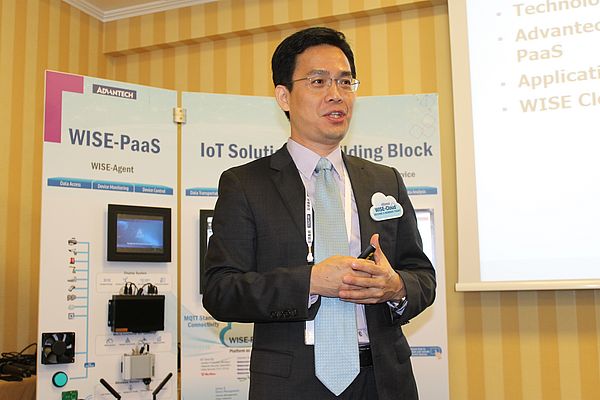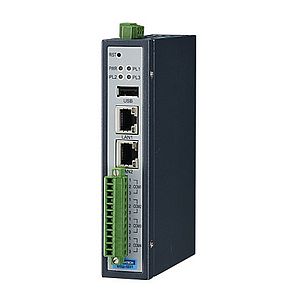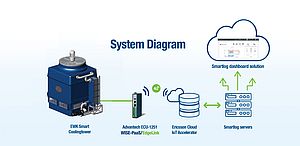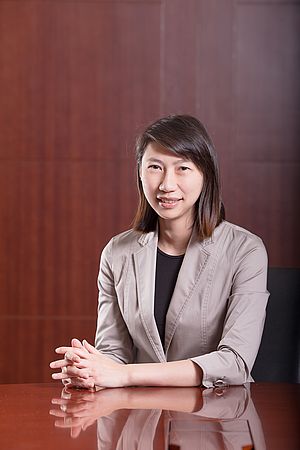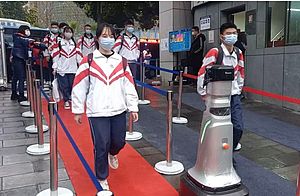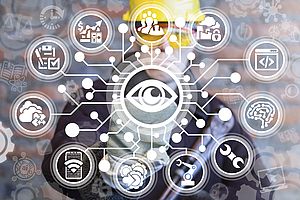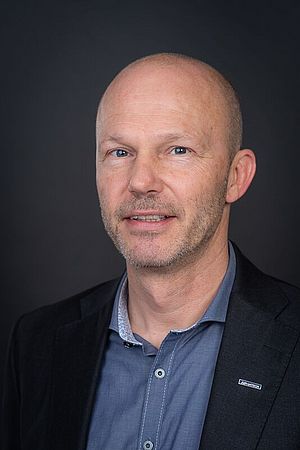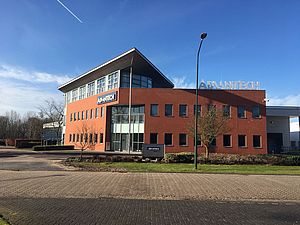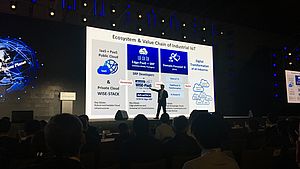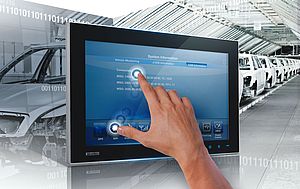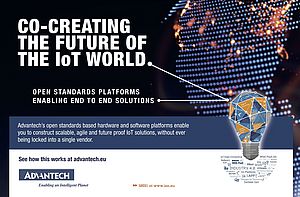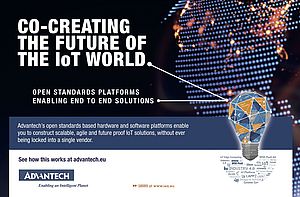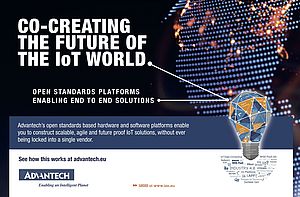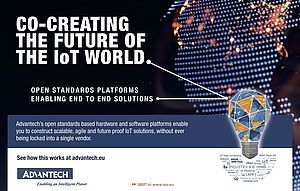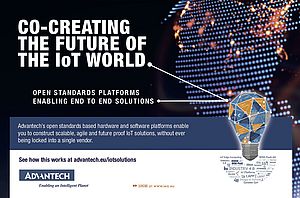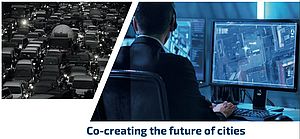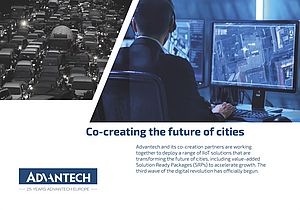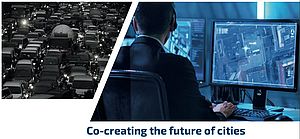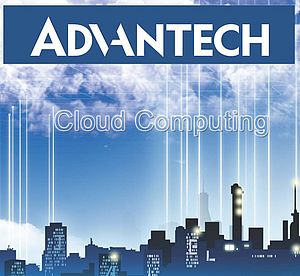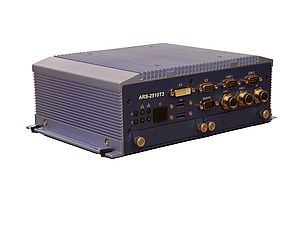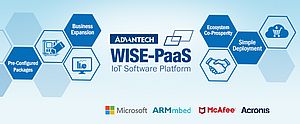IEN Europe: Mr. Chiu, the Internet of Things is reshaping the industrial production. What kind of challenges will this new technology issue to the manufacturing industry?
Mr. Chiu: The fundamental challenge is the passage from the data-supply side to the data-demand side. The data-supply side is composed from different things, and if you look at it in the manufacturing environment that's even more complicated. Here we have a co-production environment and a supporting environment system for the co-production. If we talk about manufacture environment, including the building, that's another facility area. So we have three different areas. For the IoT the challenge is how to find the cost-effective and really practical technology to make it landing. From the technology point of view, we already have tons of technologies available right now, but the key is which company can be able to integrate the practical technology to realize the cost-effective and easy-deployment solution. This is the challenge from my point of view: The turnkey package can't solve the situation; instead, we need to identify and deal with the basic building blocks - just like the Lego - which are services, controls, all the different interfaces, and the Internet.
IEN Europe: Regarding the Cloud, a major challenge for all companies will be to protect the data having them at the same time easily accessible. Which solutions does Advantech offer?
Mr. Chiu: This is a very hard topic. Let's talk about the IoT structure first. All the different IoT computers work with different environments and states, so we need to work with third parties and not just by ourselves. We have a strategic alliance with McAfee, with whom we talk about the system protection to make sure things are as much secure as available. On its side, a platform is crucial as it stays in the middle: It needs to be highly reliable and at the same time its scalability is crucial. On the other hand, if you are aiming at the multiple-sites then you need to do the hierarchical structure architecture. The scalable platform can manage the different sides. The reason why McAfee and also Microsoft decided for the O/S platform total security solution package is that this solution is able to protect the platform base. Again, the connection from the platform to the Internet is another security topic. For the HTTP security we can leverage exisiting SSL/TLS security encryption service which is high matured internet solution now., this is one of reason we use RESTful- API as open standard and secured for Internet services connected to the Internet application.
IEN Europe: Advantech built a state-of-art campus in Taiwan which anticipates some features of the smart factory. Can you tell our readers something about this successful "experiment"?
Mr. Chiu: Advantech really commits to the IoT market and technology enablement. We built two IoT technology campuses: one is located in Shanghai and one in Taipei Linkou, where we are IoT Solution Center. The one in Taipei has been built last year adopting our IoT technology. The key is that when we think about factories built with IoT technology, the most important factor is the reason why we want to use this technology to solve the existing problems. Of course, we can have big pictures and big visions, but what matters the most is how we can help our customers solve their existing challenges, as the very question for operators is: Can IoT technology help me reduce my operation costs now? Can it help me reduce my labour costs? So far, the answer to these questions has been the robot normally. But we what about most of customers who can't afford a robot; nonetheless, they have a factory. Can we use IoT technologies to provide them with a cost-effective solution? Can we provide the easy way solution to solve their very basic challenges, as they are facing them right now? These are the questions that we can provide the answer in our IoT Solution Center in Shainghai and Taipei Linkou.
IEN Europe: How will IoT impact on sustainable development and efficient production?
Mr. Chiu: The Internet of Things will surely have a big impact on the manufacturing industry. But the question is how soon and how quick it will happen. I think it depends on the company. If we talk about manufacturers, if we talk about efficiency, the question is how we can transform the entire labour process into intelligent automation also adjusting the production line. What I mean with automation is also the overall connection of all the systems together; the IT system is not a problem: We can change it easily, but here you have to consider the existing environment and the future environment, and this is not easy at all. So, before you roll out this IoT technology into your environment you need to have some sort of PLC, so that you can understand and control the process from the small area first, and then gradually move to the big area impact. I think that the impact really comes with your strategy of IoT technology implementation. Also, I think that most providers are standing on their position, while we need a shift to a new thinking. Customers surely need to do some tailored application and dashboard solutions, but we also need to pursue the easiest and cost effective approach, which is the customer-friendly step by step way.
IEN Europe: As Director of Business Development at Advantech, which are the strategies you are adopting to be a competitive IoT developer?
Mr. Chiu: My strategy is to cooperate with system integrators. IoT can't be made by one company alone. The customers themselves need to work with different IoT system integrators. For us, it is very important how we support the system integrators with our building block strategy, so how we can ally with Microsoft, IBM, Intel for our technology enabling platforms. Our goal is to be the strategic technology enabler: Microsoft, IBM, Intel are all coming to us, as we are becoming their IoT strategic partner. In the past, as more attention was given to computers, it was very different, but the IoT has changed the scenario and now they all want to make business with us. This is something very new and exciting for us, and at the same time it is the goal we pursue!
IEN Europe: The same technologies expected to enhance automation processes will exponentially increase the level of complexity they are supposed to manage. How are developers facing this challenge?
Mr. Chiu: Concerning the things' side, the challenge is that traditional industries implement traditional industrial protocols and also automation comes with a very complicated and isolated system. The challenge right now, when we talk about how to simplify the complexity, concerns the passage from the things' side to the application's side, with regard to what the customer really needs, and also different applications and more practical and easier user interfaces. So, the point is: We need to choose a platform and the company providing the platform strategy, so that we will accommodate the existing environment and allow IT and OT convergence with data. The internet base, the user interface, the patchwork environment need to be as simple as possible. Anyhow, the key answer is how easy to collect the datas from "Things" side and how easy to tansform the data as standard web service API(RESTful API) to the dashboard in "Internet" side. This structure is under an open and accessible HTTP protocol that will be the very key factor when we think about how to solve the complexity.
Alessandro Bellasio, Editor IEN-Network


